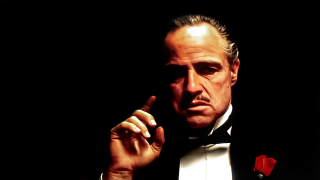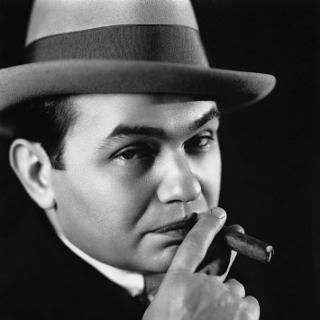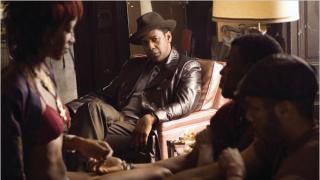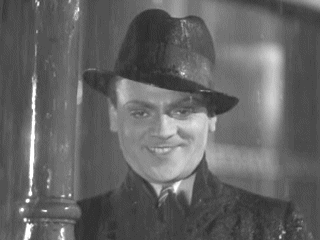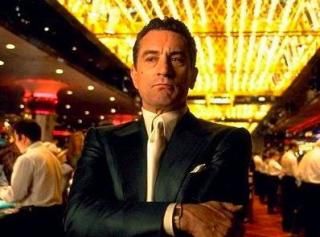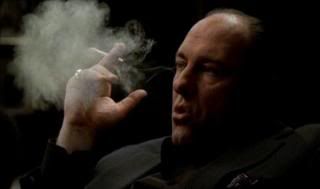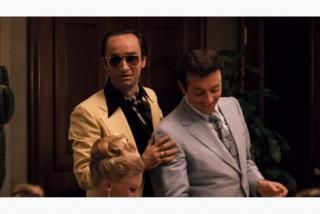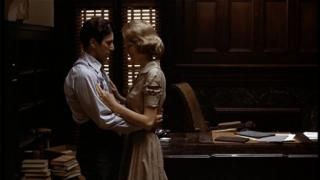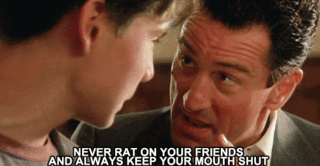(10:30 am. – promoted by ek hornbeck)

Welcome to The Breakfast Club! We’re a disorganized group of rebel lefties who hang out and chat if and when
we’re not too hungoverwe’ve been bailed outwe’re not too exhausted from last night’s (CENSORED)the caffeine kicks in. Join us every weekday morning at 9am (ET) and weekend morning at 10:30am (ET) to talk about current news and our boring lives and to make fun of LaEscapee! If we are ever running late, it’s PhilJD’s fault.(Truth be told, friends, we’re really not that disorganized; the fact that we’ve managed to put this series together and stick with it, despite the recent loss of some of our members, disabuses the notion that we’re disorganized, right? Also, I wish I had a censored night once in awhile, but alas, this is something my producers made me say.)
This Day in History

This bit was posted at Voices on the Square, The Stars Holllow Gazette, Docudharma, and Daily Kos.
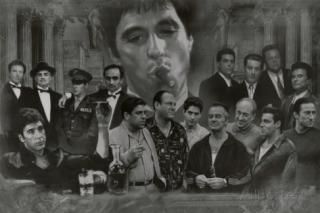


Breakfast News
| American carrier is headed to Persian Gulf June 14. 2014 10:12PM Associated Press WASHINGTON – Defense Secretary Chuck Hagel has ordered an aircraft carrier – the USS George H.W. Bush – to move from the northern Arabian Sea to the Persian Gulf as President Barack Obama considers possible military options for Iraq. Hagel’s press secretary, Rear Adm. John Kirby, says the order will give the president added flexibility if military action is required to protect American lives, citizens and interests in Iraq. Accompanying the carrier will be the guided-missile cruiser USS Philippine Sea and the guided-missile destroyer USS Truxtun. The ships are expected to complete their move into the Gulf later Saturday. |
| Iraq conflict: Iran’s Rouhani ‘ready to help’ By Janey Mitchell, BBC News Iran is ready to assist the Iraqi government in its battle against extremist Sunni insurgents, President Hassan Rouhani has said. He denied Iran had sent troops to fight in Iraq. However, an Iraqi source told the BBC that 130 Iranian Revolutionary Guards had entered the country to provide military training and advice. The insurgents have seized several cities and are closing in on Baghdad. They regard Iraq’s Shia majority as “infidels”. The Islamic State in Iraq and the Levant (ISIS) is a hardline Islamist militant group that grew during the US-led occupation (2003-2011). It is one of several jihadist militias fighting the rule of Bashar al-Assad in neighbouring Syria. |
| IRAN AND THE U.S.: THE ENEMY OF MY ENEMY By Robin Wright, The New Yorker On Monday, Iran and the United States, along with envoys from Britain, China, France, Germany, and Russia, will meet again in Vienna to work on specific terms for a nuclear agreement. The talks resume just as Washington and Tehran suddenly find that they have common cause in preventing Iraq’s abrupt disintegration. For both, their longtime strategies toward Iraq appear to be failing, as a few thousand thugs in the Islamic State of Iraq and Syria (ISIS) burn their way across the country. Washington and Tehran have started using the same language. President Obama, in his remarks on the South Lawn of the White House on Friday, said, “Nobody has an interest in seeing terrorists gain a foothold inside of Iraq, and nobody is going to benefit from seeing Iraq descend into chaos.” An hour later, Iran’s Foreign Minister, Javad Zarif, told me, by telephone, from Tehran, “It is in the interest of everybody to stabilize the government of Iraq. If the U.S. has come to realize that these groups pose a threat to the security of the region, and if the U.S. truly wants to fight terrorism and extremism, then it’s a common global cause.” Obama said that Washington is “going to pursue diplomacy” across the region. Zarif told me that he’d been working the phones with Iraq’s neighbors for the past two days. Obama warned of the dangers of the Sunni extremists trying to “overrun sacred Shia sites.” Iran is the world’s largest Shiite country, and its interests in Iraq are focussed on protecting the Shiite plurality that was long dominated by a Sunni minority. |
| When the World Outlawed War: An Interview with David Swanson Alternet / By Bruce E. Levine – November 21, 2011 (An oldie but goodie, hat tip to BigAlinWaSt for pointing this article out to me.) For those who know war only through television, criminalizing it sounds like proposing to criminalize government. But there was a time when the masses made war illegal.
|
| THE WOUNDS CAUSED BY FRIENDLY FIRE POSTED BY ELLIOT ACKERMAN, The New Yorker This past Monday night, five U.S. soldiers died in a friendly-fire incident in Zabul Province’s Arghandab District. Reading about it reminded me of the day I stopped believing in God. Fratricide is what caused this erosion of belief. On the morning of November 11, 2004, three days into the Second Battle of Fallujah, I was leading a rifle platoon, forty-six Marines. We’d fought our way about a kilometre deep into the city. Holding a defensive position in a three-story house, I leaned against a cinder-block windowsill next to a machine gunner, a corporal named Benjy. The sun had just risen, and it was quiet. We were smoking Marlboros, waiting for the day and the fighting to begin. As I talked, Benjy balanced his machine gun on a table by its bipod, just behind the open window. He was supposed to be covering the street below us, but I’d distracted him with some small talk. Then, outside, a voice calling in Arabic got our attention. An insurgent in black warm-up pants, a black t-shirt, and carrying a rifle had been about to sprint past us, his sneakers crunching against broken glass and shards of cement. But he’d heard the shouts, too-one of his compatriots, beckoning him from an unseen place-and had stopped in his tracks. He looked over his shoulder, about to bound in the direction of the voice. Before he could, Benjy shouldered his machine gun and fired, felling the insurgent like a sack of potatoes. We heard the same voice gasp; then, from countless positions, insurgents started shooting at us. What I witnessed that morning didn’t upset me because it was the first bloodshed I’d seen-the day before, a sniper had killed my friend Dan Malcolm, and, after five months in Iraq, our infantry battalion had lost several Marines. It upset me because of the extent to which it was a matter of chance. The man was there in the street, alive, running. His friend called out to him. Then he was dead. That you could go from running to lifeless on the ground that quickly laid bare the randomness of death and its converse: the fragile randomness of life. If there was a God guiding our collective fates, I couldn’t see or feel Him anymore. He wasn’t with us there. It was just Benjy and me, smoking cigarettes, talking, and his machine gun. |
| Hillary Clinton Sides with NSA over Snowden Disclosures By Sarah Lazare, staff writer CommonDreams.org
Speaking with NPR’s Terry Gross on Thursday, Clinton claimed Snowden could have “expressed his concerns” in other ways “by reaching out to some of the senators or other members of Congress or journalists in order to convey his questions about the implementation of the laws surrounding the collection of information concerning Americans’ calls and emails.” Her comments sparked criticism from progressives, journalists and civil liberties advocates. “[Clinton] is just piling on with others who criticized Snowden, not recognizing that if it were not for him and his courageous disclosures, we wouldn’t even know our government is routinely violating our 4th amendment rights,” Matt Rothschild, senior editor of The Progressive magazine, told Common Dreams. |
| The US government doesn’t want you to know how the cops are tracking you By Trevor Trimm, The Guardian ll across America, from Florida to Colorado and back again, the country’s increasingly militarized local police forces are using a secretive technology to vacuum up cellphone data from entire neighborhoods – including from people inside their own homes – almost always without a warrant. This week, numerous investigations by major news agencies revealed the US government is now taking unbelievable measures to make sure you never find out about it. But a landmark court ruling for privacy could soon force the cops to stop, even as the Obama administration fights to keep its latest tool for mass surveillance a secret. So-called International Mobile Subscriber Identity (IMSI) catchers – more often called their popular brand name, “Stingray” – have long been the talk of the civil liberties crowd, for the indiscriminate and invasive way these roving devices conduct surveillance. Essentially, Stingrays act as fake cellphone towers (usually mounted in a mobile police truck) that police can point toward any given area and force every phone in the area to connect to it. So even if you’re not making a call, police can find out who you’ve been calling, and for how long, as well as your precise location. As Nathan Freed Wessler of the ACLU explained on Thursday, “In one Florida case, a police officer explained in court that he ‘quite literally stood in front of every door and window’ with his stingray to track the phones inside a large apartment complex.” Yet these mass surveillance devices have largely stayed out of the public eye, thanks to the federal government and local police refusing to disclose they’re using them in the first place – sometimes, shockingly, even to judges. As the Associated Press reported this week, the Obama administration has been telling local cops to keep information on Stingrays secret from members of the news media, even when it seems like local public records laws would mandate their disclosure. |
| Segregation by Incarceration – America’s New Apartheid By Garry Leech, CounterPunch.org Many people associate the mass imprisonment of a population with authoritarian regimes. Consequently, many Americans are surprised when they learn that the country that incarcerates more of its own citizens than any other is the United States. With 2.3 million prisoners, the “land of the free” has more people in prison than China, which has a population four times the size of the United States. A hugely disproportionate percentage of those incarcerated are African-Americans as Washington’s war on drugs constitutes the latest incarnation of racist policies that have existed since the country’s founding. |
| How Women Are Shaping the Labor Movement and Winning Big Dani McClain on June 12, 2014 – 1:33 PM ET, The Nation Last year, California Governor Jerry Brown signed into law a Domestic Workers Bill of Rights, guaranteeing overtime pay to employees-the vast majority of whom are women-who provide care in homes across the state. The organizing that led to the win was spearheaded by affiliates of the National Domestic Workers Alliance (NDWA), which has said this new law “will put millions of dollars in the pockets of immigrant women and women of color laboring as domestic workers.” |
| How Iraq’s Crisis Got Started, and How it Didn’t Bob Dreyfuss on June 13, 2014 – 12:15 PM ET – The Nation The tragedy unfolding in Iraq now-one that could turn that country’s death toll of nearly a thousand a month to five or ten times that number-is heartbreaking. We’ll get to that, and what might happen, in a minute. But let’s first take on the despicable hawks, neoconservatives and George W. types who make the argument-like the one made by David Brooks in The New York Times today, and which has been repeated over and over again since 2011 by the likes of John McCain, Lindsey Graham, Bill Kristol and others-that President Obama cavalierly abandoned Iraq three years ago, pulling out too soon and leaving Iraq to its own devices. Here are the facts. After being elected in 2008, Obama tilted to the advice of his more hawkish advisers on Iraq. The relative doves that provided advice to Obama’s campaign, including people like Brian Katulis from the Center for American Progress, who’d supported a rapid drawdown of US forces, were eclipsed by those, such as Colin Kahl, who wanted a slow, cautious, step-by-step drawdown. Indeed, that’s what happened. And the Obama administration tried its best to work out a plan for a long-term US-Iraqi security agreement, such as the one it’s implementing in godforsaken Afghanistan now. But those negotiations failed. Ostensibly, they failed because of certain sticking points, such as the demand from the United States that Iraq provide legal immunity to US troops, which Iraqis felt was a violation of their national sovereignty. But the real reason that the talks stalled, and then collapsed, was because the Iraqis didn’t want the United States to stay. Not only did many Sunnis, who might have favored the United States as a stabilizing presence, say that America was an occupying power, but the government installed by George W. Bush and Co., heavily weighted toward extremist, sectarian Shiites with close ties to Iran, didn’t want the United States to stay either. And that’s partly because Iran, which has enormous influence in Baghdad-where its ambassadors are routinely drawn from the ranks of the Islamic Revolutionary Guard Corps (IRGC)-didn’t want any US role in Iraq, and Tehran made its wishes clear to Prime Minister Nouri al-Maliki in no uncertain terms. So, short of toppling Maliki, the United States was out. (It should be pointed out that many critics on the left, including me, opposed Obama’s efforts to maintain a US force in Iraq beyond 2011.) Meanwhile, it was W.’s neocons, and idiots such as Paul Bremer, who after 2003 obliterated Iraq’s social, political and military institutions, dissolved the armed forces, destroyed the Baath party and handed power to sectarian Shiites and the Kurds. The fact that the Islamic State of Iraq and Syria (ISIS) can have the support that it appears to have in Sunni areas of Iraq-despite its brutal history of summary executions, beheadings and onerous social diktats-is the result of putting in place a sectarian, Iran-linked Shiite bloc that viewed all Sunnis as apostates and would-be terrorists. |

Must Read Blog Posts/Articles
- Appropriate: Watch Cats “Play Soccer” on a Tiny Little Field
- Hellraisers Journal: Terror Ongoing Against Strikers in Colorado; Destruction of Victor Daily Record
- 91-Year-Old Man Returns Library Book after 61 Years
- Meanwhile in Europe
- Human-on-dolphin sex is not really that weird
- Why YouTube won’t remove Egyptian sexual assault video
- How Obama Lost Iraq
- That Time I OD’d on Pot Drugs and Watched Apocalypse Now Redux
- Random Japan
- Hillary-Michelle in 2016: Awesome or awful?

Some friends of ours:
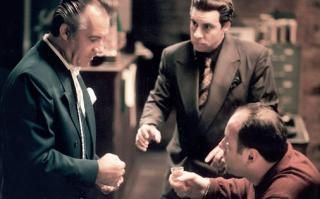 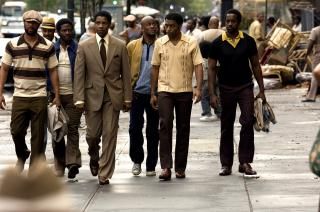 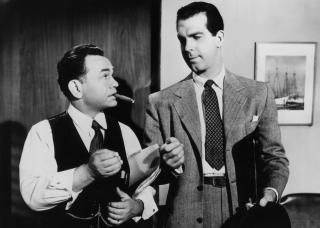  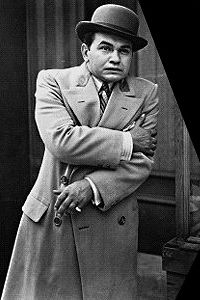  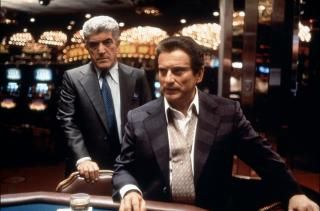 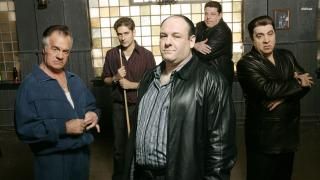 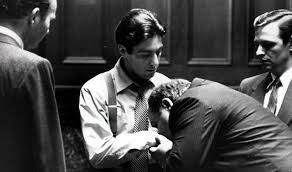  |
Happy Birthday Amy Clampitt
THE KINGFISHER
In a year the nightingales were said to be so loud
they drowned out slumber, and peafowl strolled screaming
beside the ruined nunnery, through the long evening
of a dazzled pub crawl, the halcyon color, portholed
by those eye-spots’ stunning tapestry, unsettled
the pastoral nightfall with amazements opening.
Months later, intermission in a pub on Fifty-fifth Street
found one of them still breathless, the other quizzical,
acting the philistine, puncturing Stravinsky-“Tell
me, what was that racket in the orchestra about?”-
hauling down the Firebird, harum-scarum, like a kite,
a burnished, breathing wreck that didn’t hurt at all.
Among the Bronx Zoo’s exiled jungle fowl, they heard
through the headphones of a separating panic, the bellbird
reiterate its single chong, a scream nobody answered.
When he mourned, “The poetry is gone,” she quailed,
seeing how his hands shook, sobered into feeling old.
By midnight, yet another fifth would have been killed.
A Sunday morning, the November of their cataclysm
(Dylan Thomas brought in in extremis to St. Vincent’s,
that same week, a symptomatic datum) found them
wandering a downtown churchyard. Among its headstones,
while from unruined choirs the noise of Christendom
poured over Wall Street, a benison in vestments,
a late thrush paused, in transit from some grizzled
spruce bog to the humid equatorial fireside: berry-
eyed, bark-brown above, with dark hints of trauma
in the stigmata of its underparts-or so, too bruised
just then to have invented anything so fancy,
later, re-embroidering a retrospect, she had supposed.
In gray England, years of muted recrimination (then
dead silence) later, she could not have said how many
spoiled takeoffs, how many entanglements gone sodden,
how many gaudy evenings made frantic by just one
insomniac nightingale, how many liaisons gone down
screaming in a stroll beside the ruined nunnery;
a kingfisher’s burnished plunge, the color
of felicity afire, came glancing like an arrow
through landscapes of untended memory: ardor
illuminating with its terrifying currency
now no mere glimpse, no porthole vista
but, down on down, the uninhabitable sorrow.
From the official website of poet Amy Clampitt. Site and residency supported by The Amy Clampitt Fund
an endowment benefiting poetry and the literary arts managed by the Berkshire Taconic Community Foundation
(It’s also Sam Giancana’s birthday, and even though the this is the Wise Guy edition, we won’t be honoring any actual gangsters today. I like my bad guys to be purely fictional. Except for DeadHead, of course.)

Daily Wiki:
Amy Clampitt was born on June 15, 1920 of Quaker parents, and brought up in New Providence, Iowa. In theAmerican Academy of Arts and Letters and at nearby Grinnell College she began a study of English literature that eventually led her to poetry. She graduated from Grinnell College, and from that time on lived mainly in New York City. To support herself, she worked as a secretary at the Oxford University Press, a reference librarian at theAudubon Society, and a freelance editor. Not until the mid-1960s, when she was in her forties, did she return to writing poetry. Her first poem was published by The New Yorker in 1978. In 1983, at the age of sixty-three, she published her first full-length collection, The Kingfisher. In the decade that followed, Clampitt published five books of poetry, including What the Light Was Like (1985), Archaic Figure (1987), and Westward (1990). Her last book,A Silence Opens, appeared in 1994. She also published a book of essays and several privately printed editions of her longer poems. She taught at the College of William and Mary, Smith College, and Amherst College, but it was her time spent in Manhattan, in a remote part of Maine, and on various trips to Europe, the former Soviet Union, Iowa, Wales, and England that most directly influenced her work. Clampitt was the recipient of a 1982 Guggenheim Fellowship, a MacArthur Fellowship (1992), and she was a member of the American Academy of Arts and Letters and the American Academy of Poets. She died of cancer in September 1994.

Did you say “breakfast?”
Egg in the Basket recipe:
Directions:1 Cut a circle in the middle of a piece of bread.
2 If you don’t have a round cookie cutter, the top of a glass will work.
3 Heat a skillet or griddle
sprayed with Pam or Mazola. No, no, no, use butter!4 Place the bread in the pan.
5 Put about 1/2 t butter in the hole in the bread.
6 Heat the butter until very hot.
7 Crack an egg in the hole.
8 Use a spatula to move the white around so it gets done.
9 When the egg is fairly well set, turn the bread and egg over to cook the other side, being careful not to break the yolk.
10 In the meantime, toast the holes from the bread for dipping in the yolk.

Something to ponder over your morning Prozac coffee:

|

Meme of the day:

“Mike! You do not come to Las Vegas and talk to a man like Moe Greene like that!”
DeadHead and Me:
Angel: DeadHead, is it true? Did you uprate one of Inland’s comments?DeadHead: Angel, don’t ask me about my comment ratings.
Angel: DeadHead …
DeadHead: ENOUGH!!! [calms down] All right. This one time…this one time, I’ll let you ask me about my ratings business.
Angel: Is it true? Is it? Did you uprate one of Inland’s comments?
DeadHead: No.
[Angel smiles and walks into his arms]
Angel: I guess we both need a drink, huh?
DeadHead: I don’t drink, remember? Get me some coconut cream pie instead.

Stupid Quiet, Deep Shit LaEscapee Wrote:
“I was nowhere near a computer and had no pen or piece of paper on hand. “
LaEscapee is a man of few words. They say still waters run deep. He ain’t heavy, man, he’s my brother. Even though he, and Ek Hornbeck and TheMomCat have all been BANNED from dailykos, and poligirl and psychodrew are a year on the dog house on dailykos, they are still members in good standing of The Breakfast Club at Voices on the Square, The Stars Hollow Gazette and Docudharma. Love to you bony, banned ones. If you miss the absentees, you can perhaps find them at one of the other blogs.

Breakfast Tunes






